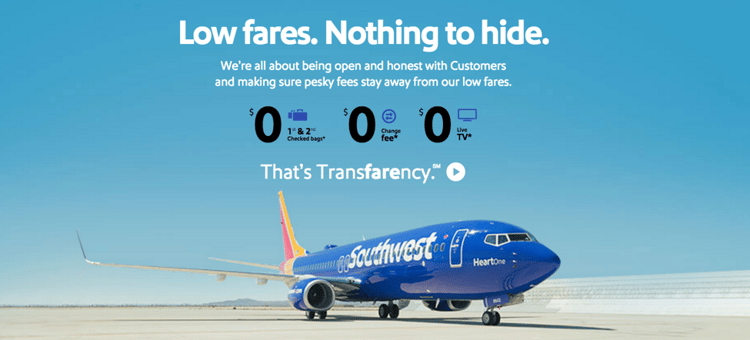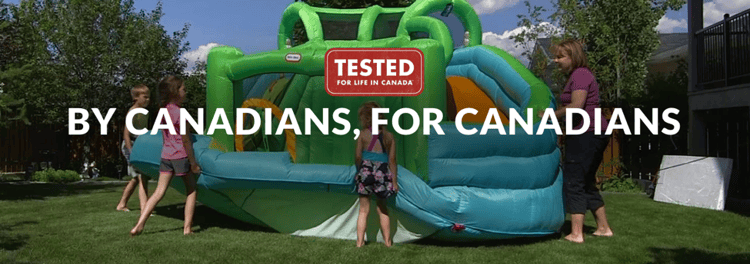According to the 2016 Food Revolution Study, 94 percent of consumers say transparency is important to their purchase decisions. Empowered by choice and information, customers have a greater expectation—and demand—for transparency from brands.
To meet those expectations, companies are showcasing positive corporate values. What might have started out as internal, corporate initiatives to be more sustainable or authentic are now full-blown marketing campaigns. As consumers demand honesty and authenticity from brands, we’ll only see more of this trend.
What can we learn from brands that have already tackled and found success with transparent marketing campaigns?
5 Examples of Transparent Marketing Campaigns
-
McDonald's: Addressing rumors by sharing facts
McDonald’s Canada’s “Our food. Your questions.” campaign is one of the most talked about transparency marketing campaigns. The company has long struggled with misinformation and unflattering urban myths about its food and ingredients. The campaign offers customers a chance to publicly ask anything and gives McDonald’s an opportunity to dispel rumors, educate customers and stand behind its products.
Since it’s launch in late 2014, the ongoing campaign garnered over 42,000 questions—with more than 3.8 million visitors reading questions and answers on the campaign’s food quality FAQ website. In one instance, McDonald’s shared video footage from inside its Canadian beef processing plant, showing that its beef patties are—in fact—made from real cows. Consumers know that McDonald’s isn’t a healthy choice, but they still want the facts to make informed decisions.
-
Southwest Airlines: Honesty as a differentiator

Southwest Airlines is a major U.S. airline that prides itself as the world’s largest low-cost carrier, proving it in the marketing campaign “Transfarency”. For Southwest Airlines, “Transfarency” is a company-wide philosophy in which customers are treated honestly and where fares actually stay low. “Being a low-fare airline is at the heart of our brand, and the foundation of our business model,” says Kevin Krone, the VP and chief marketing officer at Southwest Airlines, “so we’re not going to nickel and dime our customers.”
Together with the campaign hashtag, #FeesDontFly, the airline uses the campaign to showcase its value proposition of no hidden fees or extra costs. The campaign garnered nearly five million likes on Facebook alone, set Southwest Airlines apart from the competition and earned the trust of customers.
Halftime. For everyone except Transfarency. #AlwaysOn #FeesDontFly http://t.co/ayglL2jleThttps://t.co/JnLJxl4H0m
— Southwest Airlines (@SouthwestAir) October 9, 2015
-
Panera bread: Staying true to its mission
In May 2015, bakery-cafe chain Panera Bread made a big promise to its customers: that it will stop using artificial ingredients by the end of 2016. The company’s leadership believes taking one step toward cleaner, better food isn’t enough. On a journey to transparency, Panera Bread launched the well-received ”Food As It Should Be” marketing campaign along with a “transparent menu” that lists calories, detailed ingredients and nutritional information for every item, as well as an animal welfare report and positive impact report.
Dan Kish, Panera Bread’s head chef, explains that the campaign is all about choice. “We want our customers to know where food lies on the scale between decadence and health,” he says.
-
Patagonia: Sharing company beliefs and sticking to it
Outdoor clothing and gear retailer Patagonia is well known for sustainability. From the beginning, the company has been clear about its business mission to protect the environment and inspire social change. Patagonia constantly makes changes to be more sustainable and provide customers the facts to let them make better decisions.
For example, Patagonia released a Fair Trade campaign asking people “how is your clothing made?”. The company aims to get consumers to think about where clothing is made in order to create a stronger demand for Fair Trade products and to disrupt negative patterns taking place around the world. Unlike most garment factories, Fair Trade Certified factories pay higher wages, have a higher standard of living and bring workers closer to earning a living wage. The campaign video trailer highlights current issues and provides a better way. This inspirational video received 107,000 Facebook views, 1,400 likes and 62 comments in one week.
-
Canadian Tire: Turning your customers into advocates

Canada’s largest retailer, Canadian Tire, is up against global competition and changing customer expectations. To show that its products are best suited for target consumers, the company launched the “Tested for Life in Canada” campaign. Canadian Tire provides its community of more than 15,000 loyal customers with everyday products in order to use, test and provide product feedback. The “Tested for Life” badge is only given to products that receive a seal of approval from customers.
This campaign shows the company cares about customers and isn’t afraid of honest product feedback. By building trusting relationships with customers, Canadian Tire confidently navigates competitive markets knowing it has superior products that customers want.
Empowering Your Customers with Information
If there’s one thing people have an excess of, it’s choice. Customers today are empowered to buy whatever they want, wherever. In order to build a more authentic relationship with customers, businesses need to embrace transparency. Often, that simply means giving customers the facts and helping them make informed buying decisions. The companies mentioned in this post have taken risks in order to be more open and honest with customers. In the end, it’s those businesses that will earn the loyalty of empowered customers.








